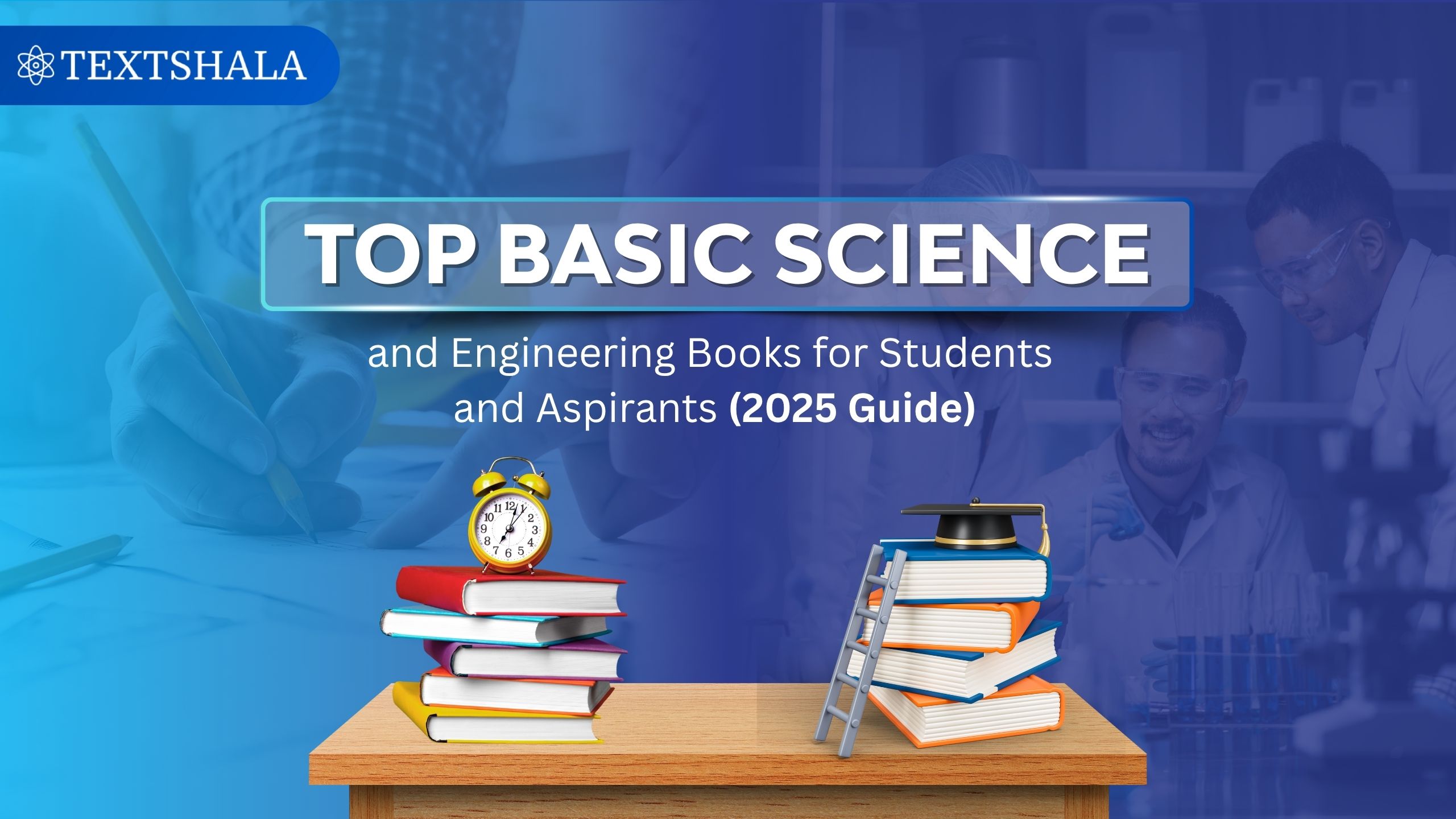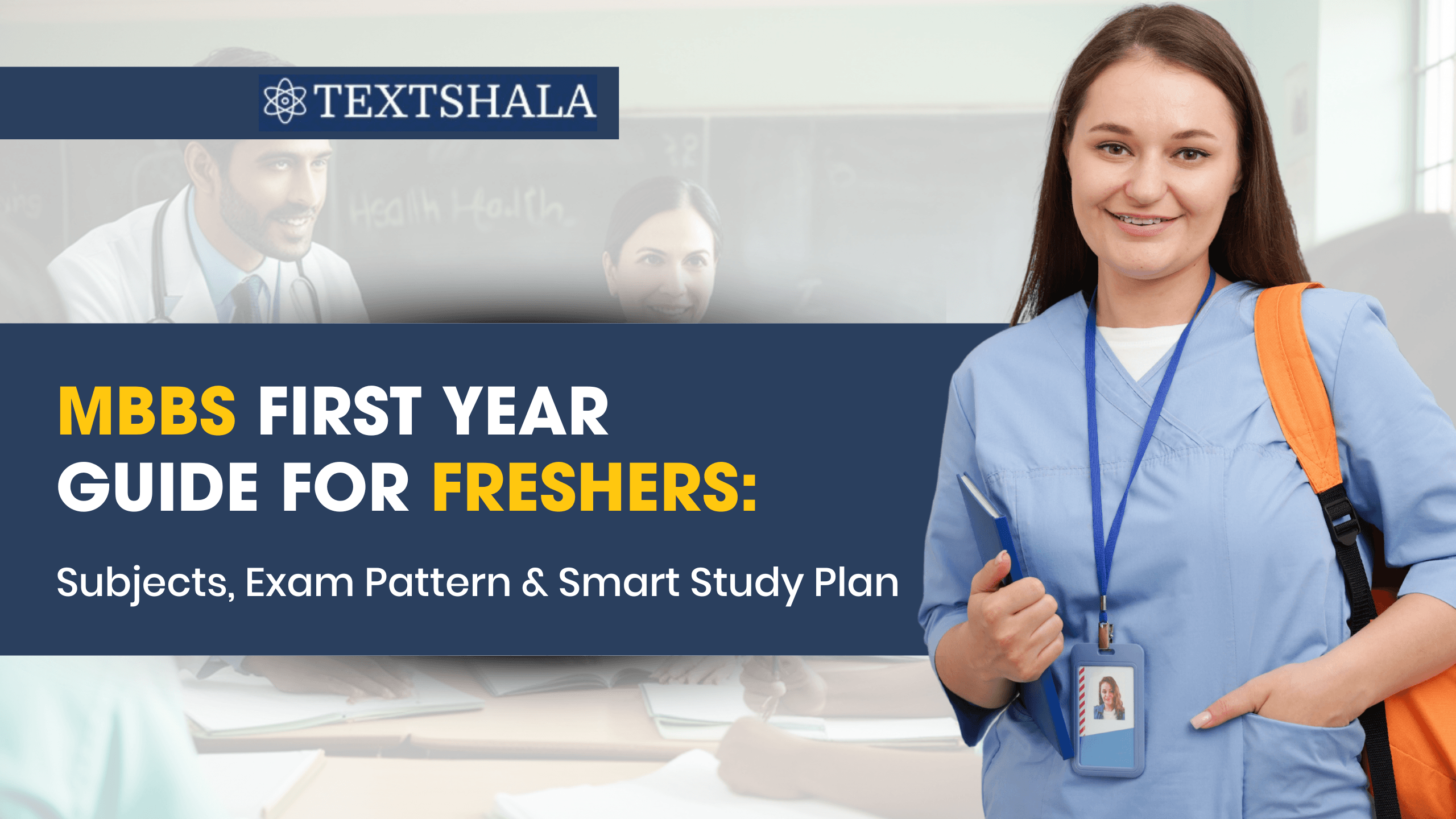Top Basic Science and Engineering Books for Students and Aspirants (2025 Guide)

A solid foundation in science and engineering is required for each aspiring engineer, diploma student, or competitive test candidate. Basic science and engineering books are more than just introductory resources; they are stepping stones to scholastic success, concept clarity, and professional development.
In this 2025 reference, we’ve selected the best basic science and engineering books across essential areas, making them appropriate for first-year engineering students, polytechnic learners, and competitive test candidates alike.
What Are Basic Science and Engineering Books?
Basic science and engineering books address fundamental concepts in physics, chemistry, mathematics, mechanics, electronics, and computer science. These are commonly examined in:
- First-year engineering programs (B.Tech/B.E.)
- Diploma and polytechnic courses
- Exam preparation for GATE, SSC JE, RRB JE, and PSU recruitments.
They assist students learn fundamental scientific ideas and technical applications before moving on to more specific topics.
Who Should Read Basic Science and Engineering Books?
These books are essential for:
- First-year engineering students seeking clarity in fundamental subjects
- Diploma and polytechnic students building technical skills
- Competitive exam aspirants preparing for engineering-based questions
- Non-engineering graduates wanting to transition into technical fields
If you’re just beginning your journey in STEM, these books are your best starting point.
Top Basic Science and Engineering Books – Subject-wise Guide
Below is a subject-wise breakdown of some of the most trusted basic science and engineering books recommended for 2025:
Physics
- Concepts of Physics (Vol 1 & 2) – H.C. Verma
- Best for building intuition and problem-solving skills
- Widely used in engineering entrance and foundation courses
- Best for building intuition and problem-solving skills
- Engineering Physics – Rajendran
- Suited for university-level engineering syllabi
- Includes theory, experiments, and applications
- Suited for university-level engineering syllabi
Chemistry
- Engineering Chemistry – Jain & Jain
- Covers bonding, polymers, electrochemistry, etc.
- Easy-to-understand with practical examples
- Covers bonding, polymers, electrochemistry, etc.
- A Textbook of Engineering Chemistry – S.S. Dara
- Structured for first-year students
- Includes both organic and inorganic topics
- Structured for first-year students
Mathematics
- Engineering Mathematics – B.S. Grewal
- A classic for differential equations, calculus, and linear algebra
- Must-have for GATE, ESE, and semester exams
- A classic for differential equations, calculus, and linear algebra
- Advanced Engineering Mathematics – Erwin Kreyszig
- Ideal for those looking for a global reference
- Includes statistics, complex analysis, and numerical methods
- Ideal for those looking for a global reference
Engineering Mechanics
- Engineering Mechanics – R.S. Khurmi
- Covers statics, dynamics, and material forces
- Best suited for diploma and first-year B.Tech students
- Covers statics, dynamics, and material forces
- Engineering Mechanics – S. Timoshenko
- International standard book with theoretical depth
- Preferred by top-tier engineering institutes
- International standard book with theoretical depth
Electrical and Electronics
- Basic Electrical Engineering – V.K. Mehta
- A beginner-friendly book with solved numericals and diagrams
- Useful for understanding current, circuits, and machines
- A beginner-friendly book with solved numericals and diagrams
- Basic Electronics – D.P. Kothari
- Covers semiconductors, logic gates, and communication basics
Computer Science (Introductory)
- Let Us C – Yashwant Kanetkar
- The go-to book for learning C programming fundamentals
- The go-to book for learning C programming fundamentals
- Introduction to Computing – Peter Norton
- Ideal for beginners with no prior coding experience
Best Publishers for Basic Science and Engineering Books
When purchasing basic science and engineering books, these publishers are considered most reliable:
- Textshala
- McGraw Hill Education
- Pearson Education India
- Laxmi Publications
- Khanna Publishers
They consistently update their books based on the latest university syllabi and exam trends.
How to Choose the Right Basic Science and Engineering Book?
Here are some quick tips to ensure you pick the right book:
- Match it with your college or competitive exam syllabus
- Prefer books with solved examples, MCQs, and diagrams
- Choose latest editions to align with new patterns
- Check author background and readability level
Recommended Book Sets or Combos
Looking for value packs? You can find combo offers like:
- Diploma or Polytechnic Combo Packs (Physics + Chemistry + Maths)
- Engineering Entrance Prep Sets
- GATE Foundation Book Bundles
Platforms like Flipkart and Amazon often feature limited-time combo deals for students.
Where to Buy Basic Science and Engineering Books?
Popular platforms for buying affordable or discounted titles:
- Amazon India
- Flipkart
- Textshala
- Local bookstores and college co-op shops
Looking for free access? Explore:
- NPTEL, SWAYAM, or OpenStax for legally free content
- Library Genesis (for preview purposes only verify legality)
Conclusion
A successful engineering journey starts with clarity in fundamentals. The best basic science and engineering books listed above will guide you through the critical subjects of Physics, Chemistry, Maths, and introductory engineering topics.
Don’t delay! Pick your subject-wise books and start building the knowledge base that will support you throughout your academic and professional life.
FAQs
Q1: What are the best basic science and engineering books for beginners?
A: For beginners, books like Concepts of Physics by H.C. Verma, Engineering Mathematics by B.S. Grewal, and Basic Electrical Engineering by V.K. Mehta are highly recommended.
Q2: Can I prepare for competitive exams using only basic science and engineering books?
A: Yes, many exams like SSC JE, RRB JE, and diploma-based PSU exams are based on basic science and engineering concepts.
Q3: Which is better – NCERT or engineering-specific books for basics?
A: NCERT is great for clarity, but engineering-specific books offer deeper and broader application-oriented learning.
Q4: Are these books useful for diploma and polytechnic students?
A: Absolutely. Most of these books are aligned with diploma syllabi and are often recommended by polytechnic instructors.
Q5: Where can I find free PDF versions of these books legally?
A: Platforms like NPTEL, SWAYAM, and OpenStax offer legal, free access to many foundational textbooks.




